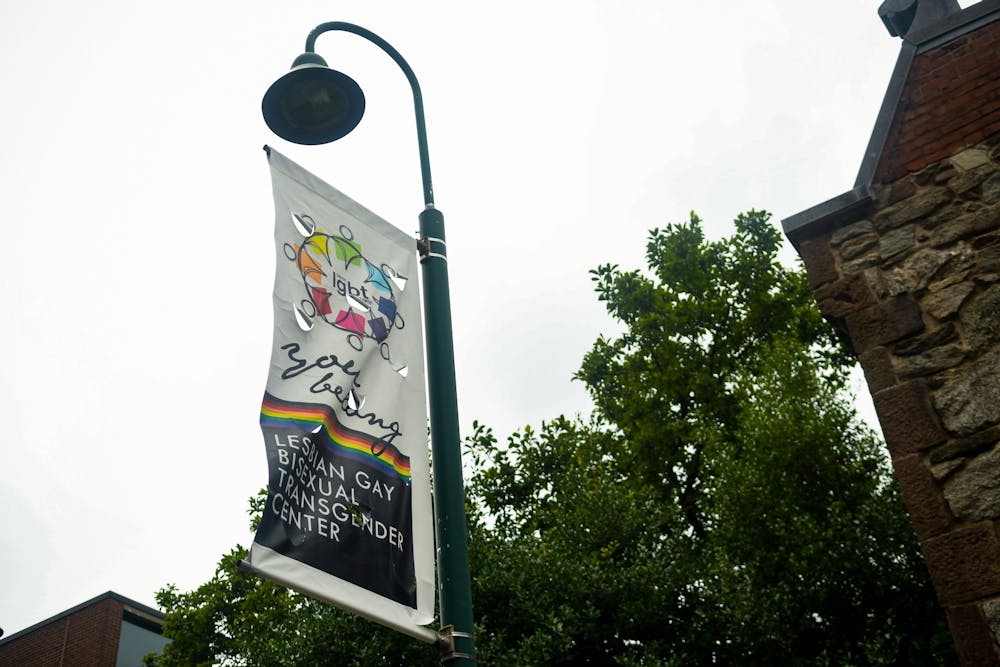Following the United States Supreme Court’s decision to uphold a web designer’s right to refuse service to same-sex couples, members of the Penn community have expressed concern over the future of LGBTQ rights.
In a 6-3 decision on June 30, the Court ruled that “[t]he First Amendment prohibits Colorado from forcing a website designer to create expressive designs speaking messages with which the designer disagrees.” According to Penn students and a University of Pennsylvania Carey Law School professor, the ruling has put LGBTQ rights on vulnerable legal footing, increasing the risk that business owners will refuse to offer services based on their personal and religious beliefs.
Justice Neil Gorsuch, writing for the majority, stated that Colorado’s anti-discrimination law cannot compel the speech of petitioners Lorie Smith and her company, 303 Creative LLC, in ways that "defy her [Smith's] conscience about a matter of major significance."
On the day of the ruling, Penn Carey Law Deputy Dean for Equity & Inclusion Tobias Wolff released a statement calling the decision “a blow to equal treatment in the public market.”
"For the first time today, the Supreme Court has held that the First Amendment authorizes a business operating in the public marketplace to violate anti-discrimination laws and tell unwanted customers, 'We don’t take your kind here,'" he wrote.
Wolff authored a widely cited amicus brief in 2022 that stated that ruling in favor of Smith would potentially enable any business that sells goods or services involving skill with images or words to skirt anti-discrimination laws by arguing for a similar exemption.
Andrew Choe, rising College senior and co-chair of the Penn Lambda Alliance, said that the Court’s decision aligned with a recent increase in anti-LGBTQ bills and rhetoric.
“It seems to be signifying a trend that the rights LGBT+ individuals have fought tirelessly for are being stripped away one by one,” he said.
Supreme Court overturns affirmative action in college admissions
Rue Landau could become Philadelphia’s first LGBTQ City Councilmember
The Lambda Alliance is the umbrella advocacy group for several LGBTQ-focused groups on campus, aiming to provide a welcoming community for its constituent groups. Choe said that at Penn, many young individuals have become somewhat accustomed to being accepted for their sexualities — a reality this decision now challenges.
“It’s hard to grapple with the idea that a large population doesn’t recognize [the LGBTQ community] as real people,” Choe said.
In her dissent, Justice Sonia Sotomayor wrote that “the immediate, symbolic effect of the decision is to mark gays and lesbians for second-class status.”
Rising College senior Zach Koung agreed with Sotomayor that the decision is a step back in the struggle for equality.
“The Court, for the first time in its history, has licensed a constitutional right to refuse to serve members of a protected class,” Koung said.
Koung, who has previously worked for the Human Rights Campaign, an American LGBTQ advocacy group, believes that students must continue the fight for equality and justice. Specifically, he pointed to the Equality Act, a proposed bill that would provide "consistent and explicit non-discrimination protections for LGBTQ+ people across key areas of life,” according to the HRC.
Choe stated that the ruling was a wake-up call for advocating for LGBTQ rights, noting that the community could not afford to be complacent.
“Queer people exist, have always existed, and do not and will not need permission to continue to exist,” he said.









